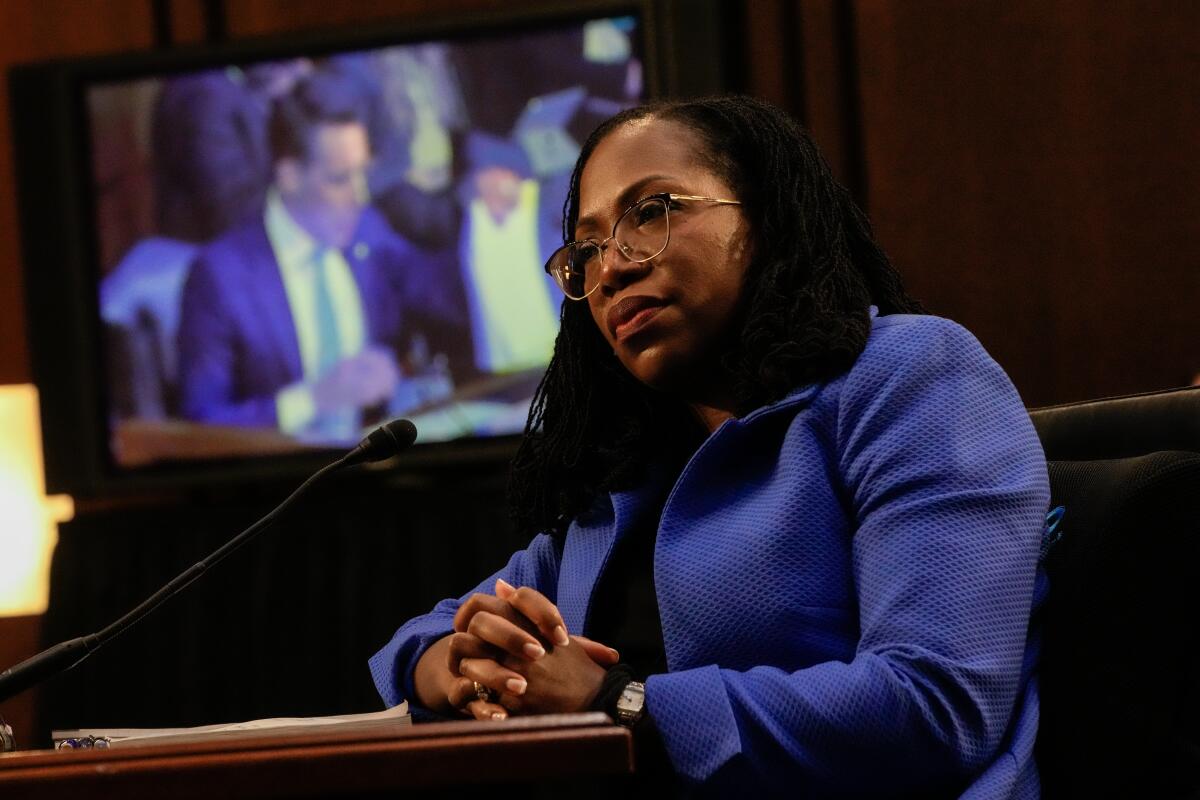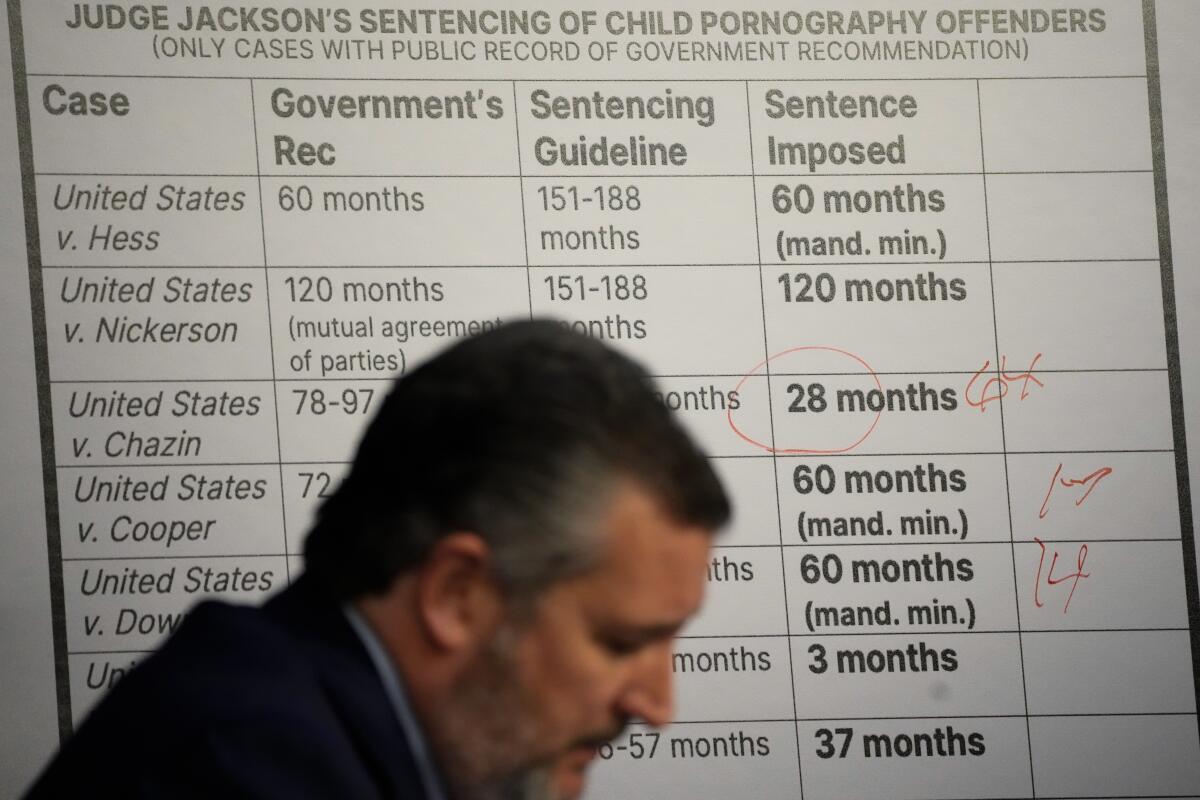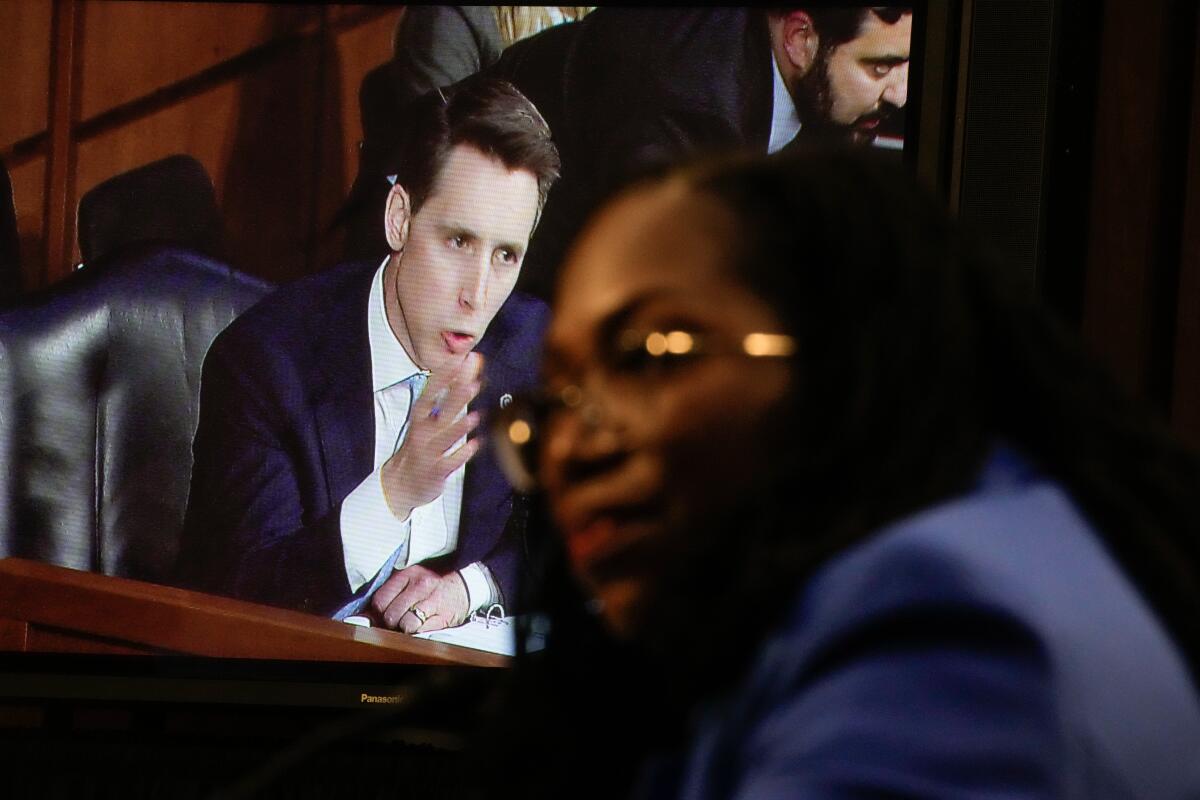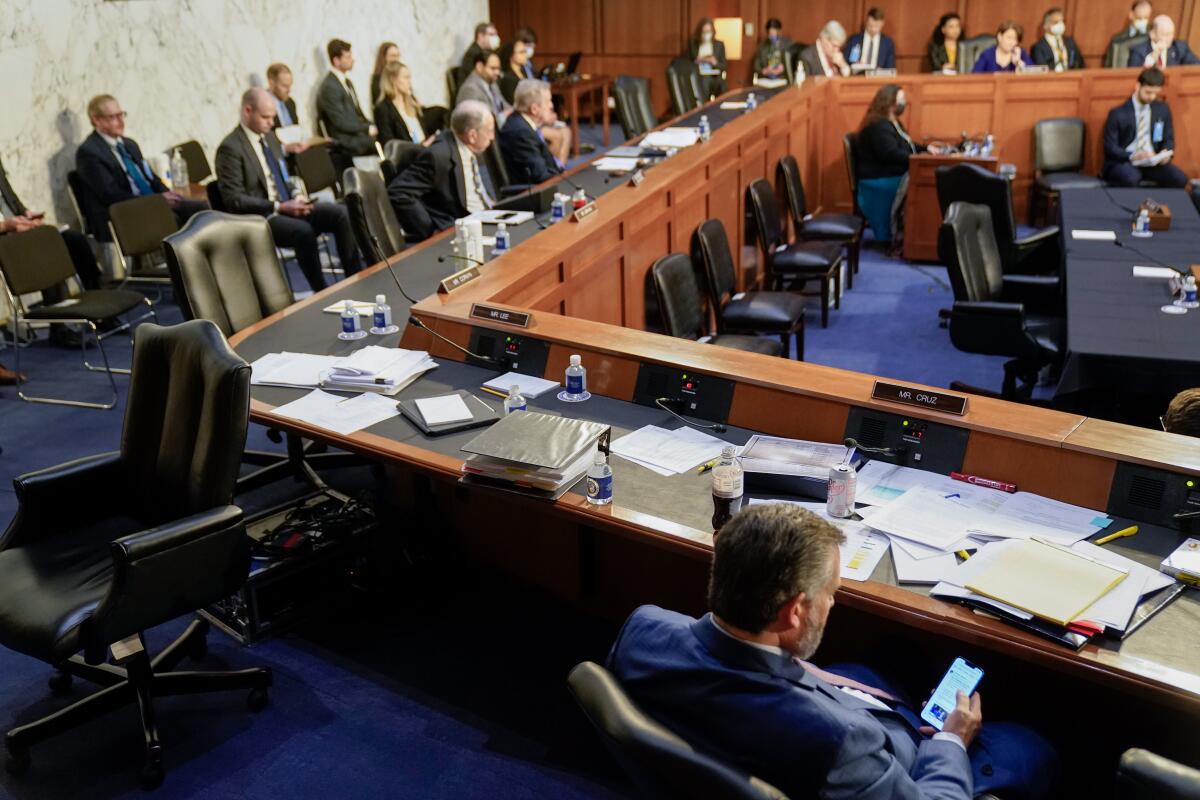‘Hard to watch’: For Black women, Ketanji Brown Jackson hearing feels all too familiar

- Share via
Georgetown University government professor Nadia Brown tossed out the syllabus Tuesday for her course on race, gender and American politics and spent the class watching clips from Judge Ketanji Brown Jackson’s Senate confirmation hearing.
The session was a rare opportunity to showcase real-world events in the classroom. But it was also personal for Brown, one of many Black women around the country who have seen their experiences starkly reflected in Jackson’s historic Supreme Court nomination.
“This is just a master class in how Black women have to be patient — have to be fully composed in responding to things that are meant for destruction,” said Brown, chair of the women’s and gender studies program at Georgetown. “These are the kinds of attacks that Black women get in their professional roles.”
For weeks, Black women supporting Jackson’s nomination awaited her confirmation hearing with a mix of excitement and dread, eager to see history being made, but concerned her critics would play into racist and sexist tropes.
Democrats and civil rights advocates mobilize to defend Judge Ketanji Brown Jackson against expected GOP attacks at her Senate confirmation hearings.
Republicans on the Senate Judiciary Committee seemed aware of that Monday, taking pains to insist in their opening statements that scrutinizing Jackson’s record was not the same as attacking the first Black woman ever picked for the high court.
But on the third day of Jackson’s hearing, many Black female lawyers and scholars said some of their fears had been realized.
Republicans, they said, were engaging in a series of political stunts and character attacks.
Jackson and the Democratic senators on the panel said they’d had to spend much of their time defending her against unfounded or misleading claims that she supports the teaching of critical race theory in schools, that she’s soft on crime and that she is sympathetic to sex offenders.

“You’ve seen this effort by some of the senators to smear her, and it is hard to watch,” said Fatima Goss Graves, president of the National Women’s Law Center. “I imagine that women in particular around the country who are watching this are frustrated.”
Graves, who watched Tuesday’s proceedings from inside the hearing room, pointed to a moment during Texas Republican Sen. Ted Cruz’s often provocative questioning about race.
“I imagined how I would fare — probably not as well as she — in this situation,” Graves said.
Referring to a children’s book that aims to teach young people about racism, Cruz asked Jackson whether she believes “babies are racist.”
A somber-faced Jackson paused for several seconds, exhaled deeply and appeared to reflect carefully before responding. It was a sigh that resonated with many viewers.
“The sigh. The pause. The double blink. The angle of the head. Volumes spoken before giving the answer,” tweeted Sherrilyn Ifill, a civil rights lawyer and former head of the NAACP Legal Defense Fund. “We understand.”
The Democrats have a majority, but just barely. What that means for Judge Jackson’s confirmation to the Supreme Court.
Several Republicans on the committee, including Cruz and Sen. Josh Hawley of Missouri, dedicated large portions of their questioning to Jackson’s record in cases involving sex offenses.
A question she had asked during a 2012 U.S. Sentencing Commission hearing about the motivations of people who view child pornography was falsely portrayed by both senators as representing Jackson’s personal views.
“I find that a pretty remarkable argument, that people in possession of child pornography are not actually interested in the child porn,” Cruz said Tuesday, after reading a longer version of her comments off a red poster board. “Do you agree with that sentiment?”

“It looks as though I was asking that of someone, not taking that position,” Jackson replied.
Hawley focused on the 2013 case of Wesley Hawkins, an 18-year-old convicted of sharing images of child abuse online and with an undercover agent. Federal sentencing guidelines recommended a sentence of 97 to 121 months, and prosecutors requested 24 months. Jackson, who said she was bound to abide by other factors too, sentenced him to three months in prison and 73 months of supervised release.
Alexis Hoag, an assistant professor at Brooklyn Law School, said the line of attack felt like it came “right out of QAnon’s playbook,” referencing the conspiracy theory that many celebrities and Democratic politicians are part of an international cabal of pedophiles.
“As a Black woman who also served as a federal public defender, it’s hard to watch, because I can’t divorce all these aspects of her identity from the way she’s being treated by the Republican senators,” Hoag said.
Jackson’s confirmation process is playing out in the midst of rising political tribalism and lingering bitterness over Justice Brett M. Kavanaugh’s 2018 confirmation hearing, which was roiled well into the process by the release of sexual assault allegations against him.
The panel has also become a venue for those seeking higher office to attempt to steal the spotlight, a criticism Republicans leveled at Democrats during the Kavanaugh hearings, and raised by Democrats this week against Republicans.
Sheryll Cashin, professor of law, civil rights and social justice at Georgetown Law School, said 2024 GOP presidential hopefuls were using the hearing to score “rhetorical points” with the party base.
“I think that’s unfortunate,” she said. “But that’s more a reflection on them and their aspirations and the kind of politics they engaged in, than on ... Jackson and her race or gender.”

More to Read
Get the L.A. Times Politics newsletter
Deeply reported insights into legislation, politics and policy from Sacramento, Washington and beyond. In your inbox three times per week.
You may occasionally receive promotional content from the Los Angeles Times.













